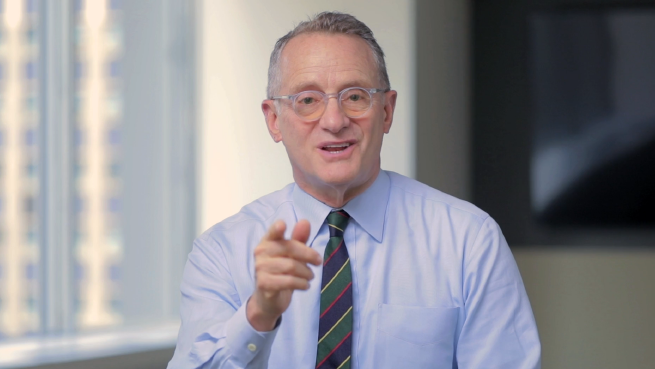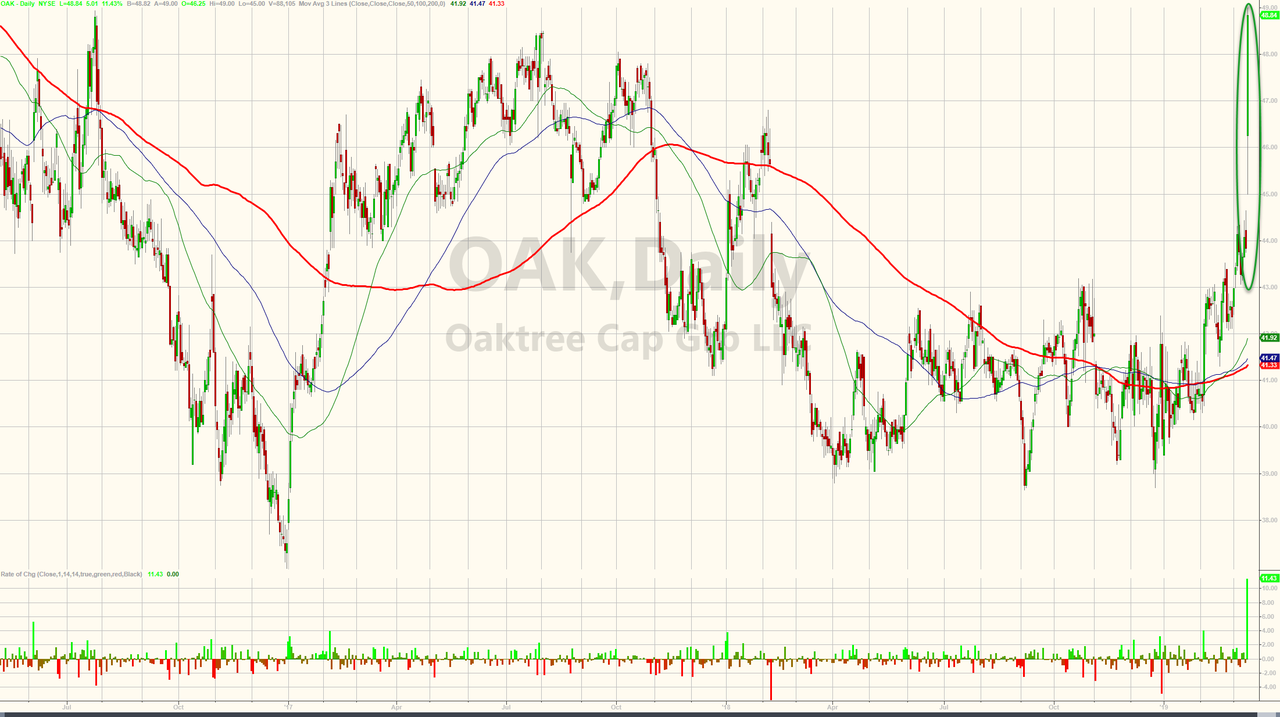Did Howard Marks just ring the bell?
In a surprising move – if there is market upside to be leveraged – Howard Marks’ Oaktree Capital Group has agreed to sell a majority stake to Brookfield Asset Management, Canada’s largest alternative investment firm.
Brookfield will acquire a 62% stake in Oaktree in a cash and stock deal, according to a statement from the companies on Wednesday. The offer represents a premium of 12.4% per Oaktree Class A unit based on closing price on March 12
The two firms together will have approximately $475 billion of assets under management and $2.5 billion of annual fee-related revenue, the statement said. The press release notes that both Brookfield and Oaktree will continue to operate their respective businesses independently, partnering to leverage their strengths.
In an interesting sidenote on the deal, commencing in 2022, former employee-unitholders will be able to sell their remaining Oaktree units to Brookfield over time pursuant to an agreed upon liquidity schedule and approach to valuing such units at the time of liquidation, and Oaktree’s founders, senior management and current employee-unitholders will have the option to do so as well. Pursuant to this liquidity schedule, the earliest year in which Brookfield could own 100% of the Oaktree business is 2029.
Bruce Flatt, CEO of Brookfield, stated, “As we continue to strategically grow Brookfield, we are thrilled to be partnering with Oaktree and with its exceptional management team whose credit business is second to none. This transaction enables us to broaden our product offering to include one of the finest credit platforms in the world, which has a value-driven, contrarian investment style, consistent with ours.”
Howard Marks, Co-Chairman of Oaktree, stated, “The opportunity to join forces with Brookfield is ideal. Our firms share a culture that emphasizes both investing excellence and integrity, and our businesses mesh without overlapping or conflicting. The rest of Oaktree management and I are excited about the combination of support and independence we expect. We look forward to having Brookfield’s contribution to our ability to serve our clients, and to doing the same for them.”
The big question is – did Marks, who has previously noted the shrinking opportunity set in credit markets (as spreads collapse amid rising leverage), just signal the top in market exuberance, by finding a greater fool to monetize his AUM?
In a recent interview, Marks said he doesn’t think the highs are in – at least not yet. But ultimately, he believes we will get to new “highs that lead to lows.”
GRANT WILLIAMS: There must come a point where things get out of hand. Going back to the original question of 2005, 2006, do you see any similarities in what you’re seeing and what’s starting to make your spidey sense tingle?
HOWARD MARKS: Not similarities in the sense of specific things repeating. But I have felt that because people were traumatized by the great recession, the recovery has been the slowest one since World War II. And that has kept things moderate, which meant that we would certainly have a recession one of these days. But it would be moderate. When you don’t have a boom, you don’t have to have a bust in my belief.
But now between the tax bill, which was a shot of adrenaline into, in my opinion, an already healthy patient, and then the possibility that we’re going to see a Powell put in action, I think that we may get to highs that lead to lows.
I’m a believer in cycles. I believe they always have occurred, I think I understand why. And I think they always will occur and I try to study them. And then when I kind of got to the end of writing the book I said, well why do we have cycles? If the market goes up 10% a year on average, why doesn’t just go 10% every year? And in fact, it almost never goes up between 8 and 12. So the average is not the norm. Why not?
And the answer, I think, is excesses and corrections. So you have a trend line and most trend lines are upward sloping, but then you deviate from the trend line on the upside because of some combination of optimism and greed and wishful thinking. And then you have to have a correction to the downside. So now I’m thinking we may have more of an excess, which leads to more of a correction.
And the longer the Fed and the federal government forestall a recession by artificial means, the worse the fallout will be when one finally arrives.
via ZeroHedge News https://ift.tt/2F1Wsb9 Tyler Durden

